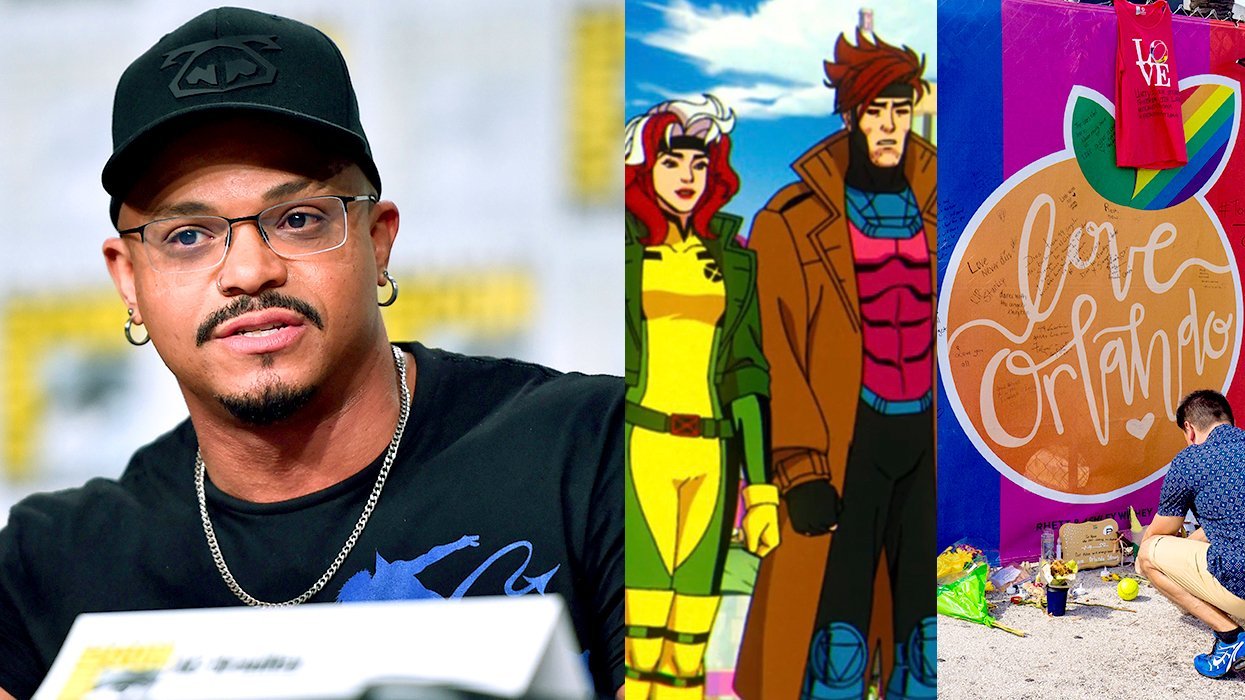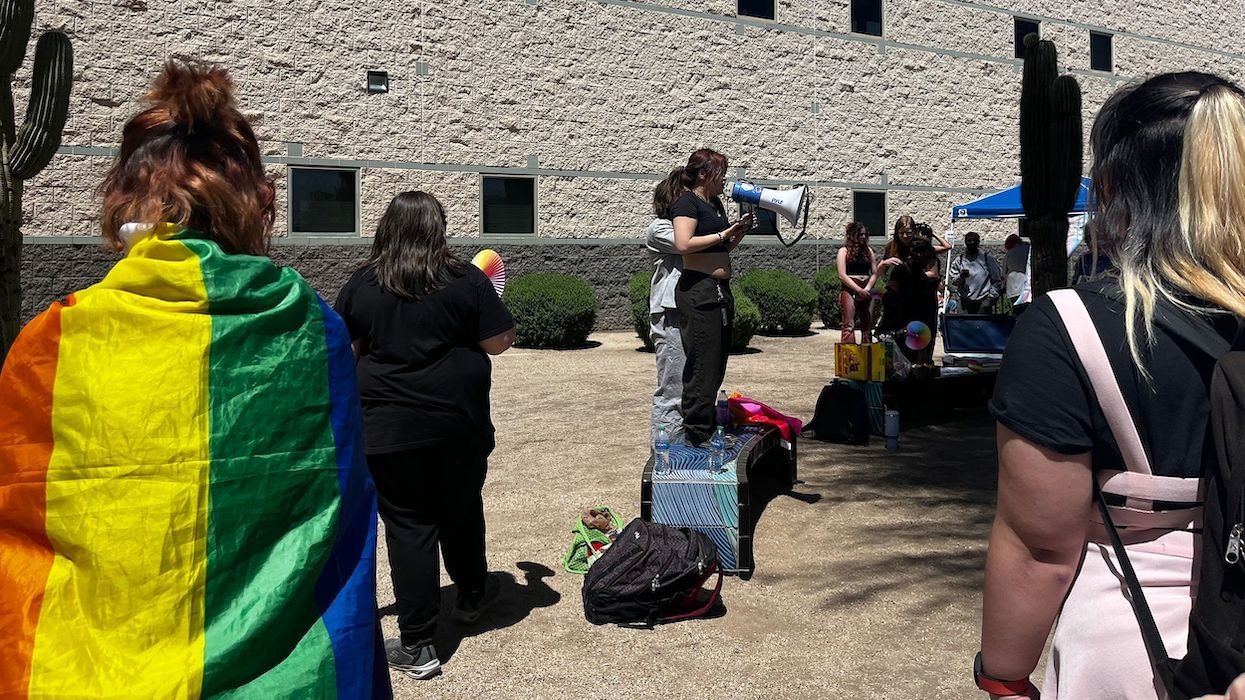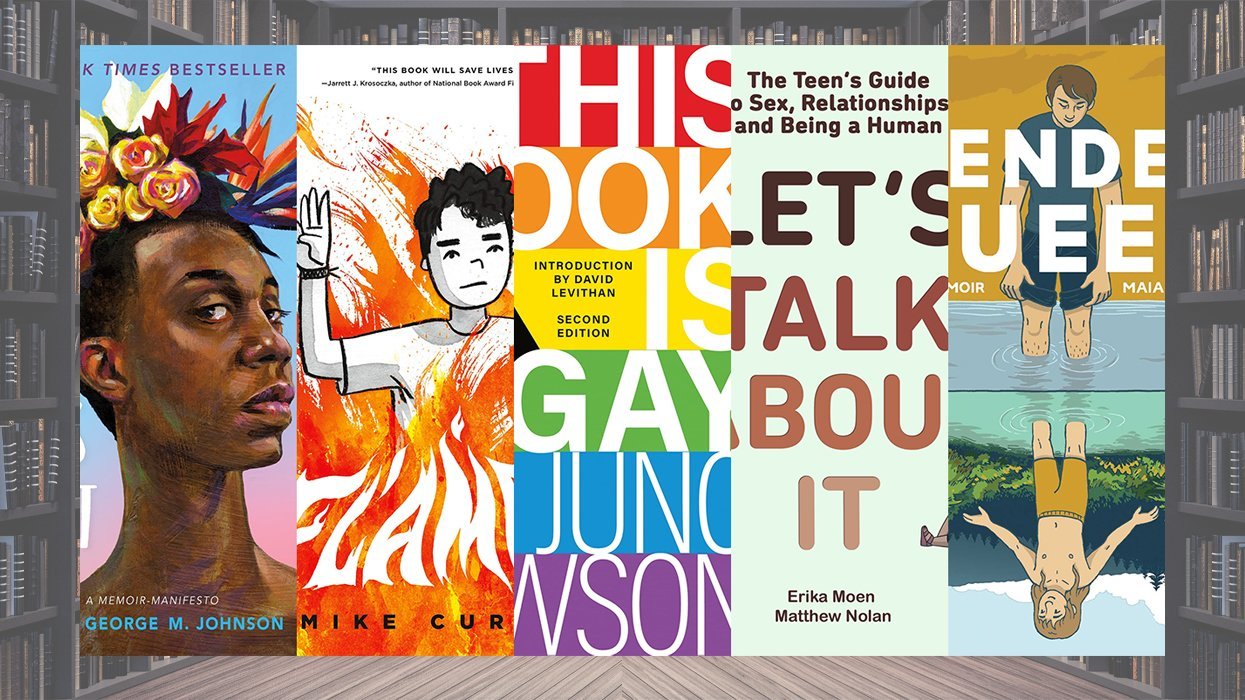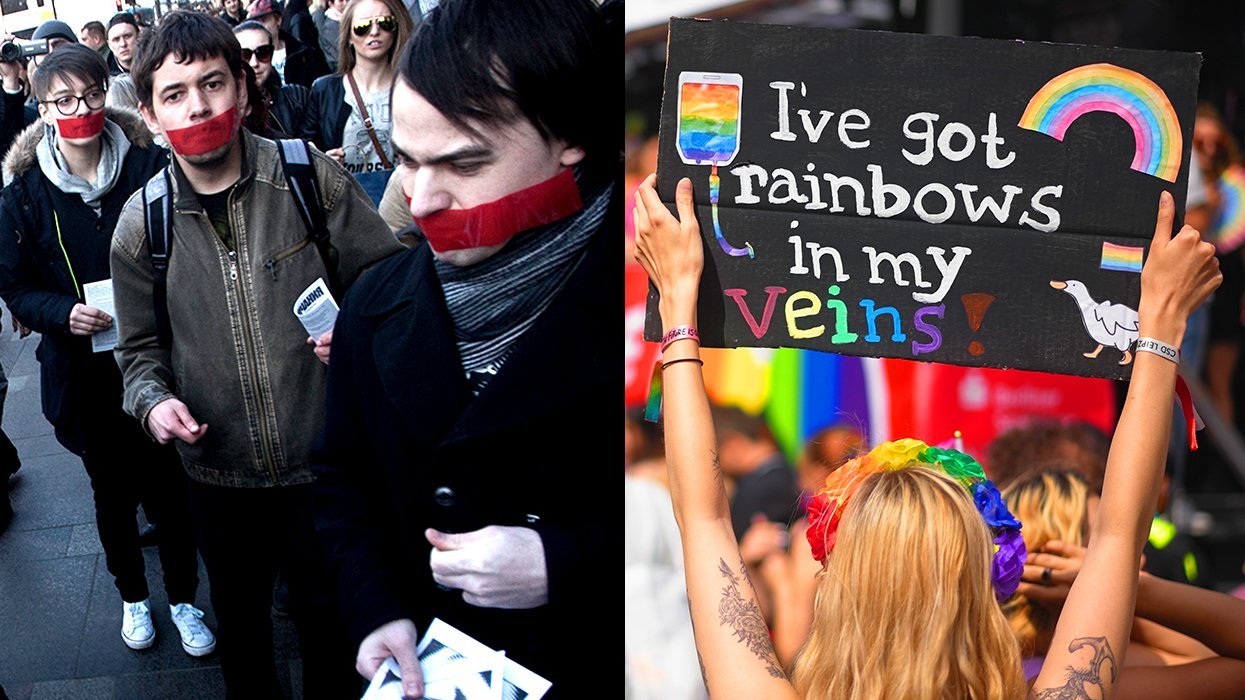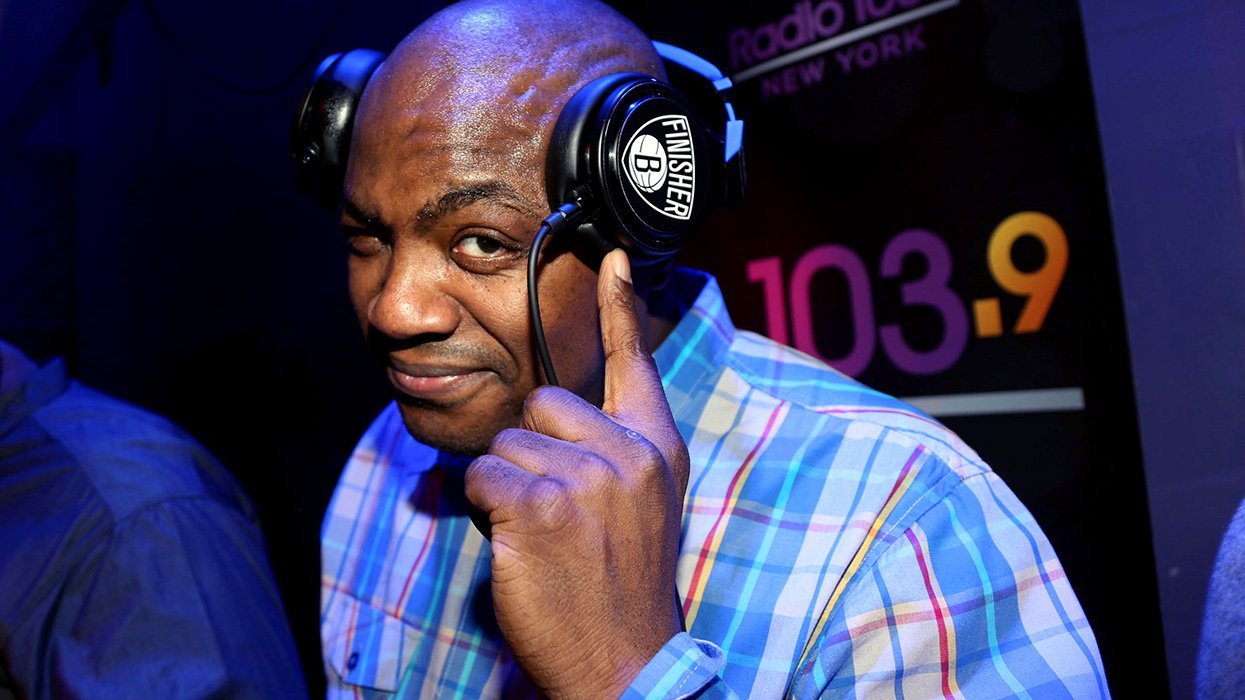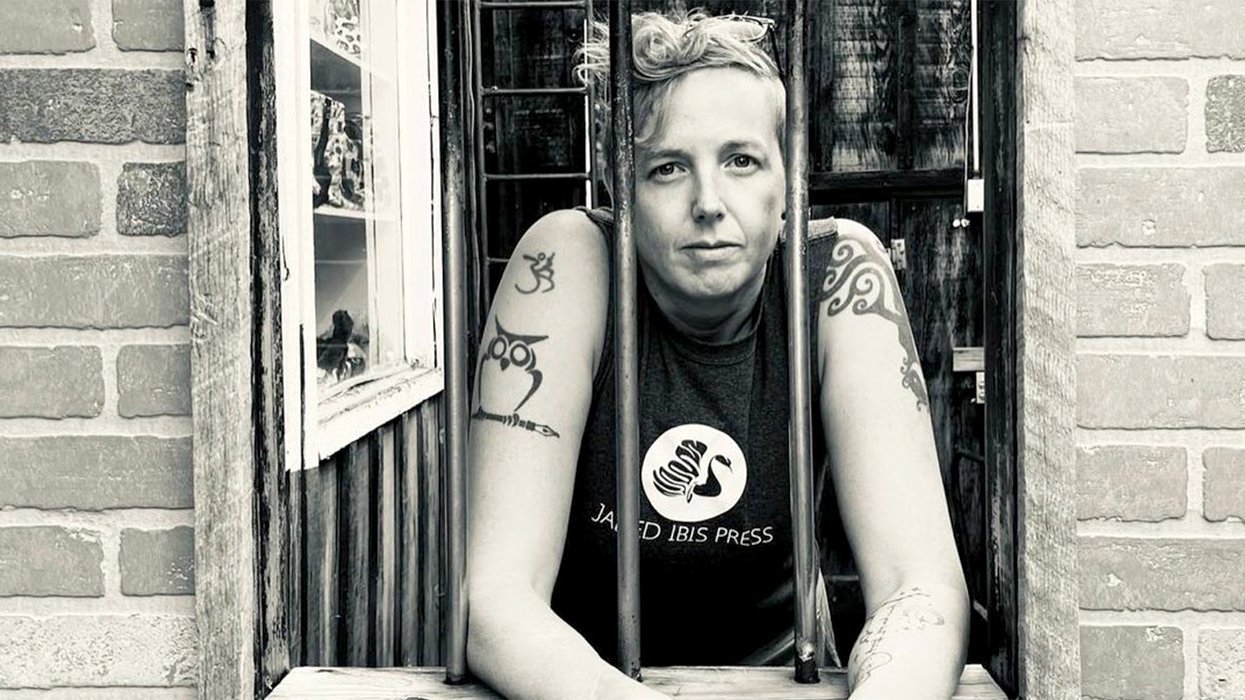
CONTACTStaffCAREER OPPORTUNITIESADVERTISE WITH USPRIVACY POLICYPRIVACY PREFERENCESTERMS OF USELEGAL NOTICE
© 2024 Pride Publishing Inc.
All Rights reserved
All Rights reserved
By continuing to use our site, you agree to our Private Policy and Terms of Use.
On Wednesday, March 23, David Michael Conner wrote a frank and brutally honest essay about how life was not getting better for him in the years following high-school. The essay prompted hundreds of e-mails, comments, and letters with various reaction. Now, David Michael Conner responds.
COMMENTARY: I am alone. Right now, and most of the time I don't have to be somewhere, I sit idly, mindlessly in my apartment. Real, rich housewives from Bravo television country keep me company, sort of, with their constant bickering and bragging. Being alone with one's thoughts as often as I am can make a person think dangerous thoughts and do risky things -- like send off extremely personal, confessional essays to The Advocate.
I've written for Advocate.com before, but I've never revealed so much so publicly in my life. I'm not sure I should have; some things are best reserved for the therapist's office. But what's done is done, and despite feeling a little too exposed and hearing from a few people who think I should get over myself, I'm not sorry for having "come out" as -- well, whatever you want to call it. Depressed. Unstable. Self-loathing. Self-indulgent or self-absorbed, even.
But I'm not sorry. Because, for the first time in my life, I've heard from people -- scores of people -- who have written to me on Facebook or my personal e-mail to tell me that they feel exactly the same way I do about not fitting in, not being good enough. About it not getting better for them. I've heard from people from age 20 to age 60 telling me that their lives are the same, at times just as desperate.
I've also read the comments here, which have ranged from empathetic to sympathetic to disbelieving to nearly vitriolic. The only one that really bothers me came from JDB in Minneapolis, who read what I wrote as "a refutation of [Dan] Savage's 'It Get's [sic] Better' campaign."
I can't -- and wouldn't -- deny that I wrote my commentary on It Gets Better "in the haze of depression" (and several new medications). I've been acting out recently, erratically and oftentimes inappropriately -- but never, ever disingenuously. I've been acting out by telling the unfettered truth to anyone unfortunate enough to ask "How are you?"
But the point, which I really only glossed over in my earlier piece, was not to undermine the It Gets Better campaign. As I stated then and will reiterate here, I think the campaign is well-intended and valuable. It's a proverbial carrot for young people whose lives are hell right now. Who, other than a member of the Westboro Baptist Church, would argue with such a noble effort?
What I meant to point out, what I think someone needs to begin discussing now, is what "it" is. The day-to-day teasing, bullying -- torture in some instances -- probably will get better. It did for me, anyway, and as I explained before, I found temporary solace during my college years. "It" seemed better. By contrast, it was. But then the years went by.
"The past is never dead. It's not even past."
This pair of sentences, from William Faulkner's novel Requiem for a Nun, encapsulate an idea that I glossed over in my previous commentary on the It Gets Better campaign. The reason I mentioned my physical scars -- from acne and weight, both of which are inextricably linked to my adolescence and sexuality, because I went into hiding and gave up my will to live once the daily abuses began in middle school and continued through high school -- was to suggest that, unlike some, perhaps, I carry constant reminders of those years with me. I can cover certain imperfections with clothes, but not the ones on my face. As I interact with gay men, which I used to do more than I do now, it is always clear that those scars make me different, weird, unacceptable -- same story as when I was young, just for different reasons.
But whether a person has physical scars or not, the young person to whom the It Gets Better campaign is addressed may still be alarmed -- alarmed to the point of post-traumatic stress disorder -- to find as an adult that the attacks from her youth have taken up permanent residence in her brain space. As I've gotten older, beginning in my mid 20s and continuing to this day, the sound and the fury of my past has swept through my life like a psychological tsunami. Several people commented on my photo, essentially stating that I'm not that bad-looking. Doesn't matter. The reality -- my reality -- is that when I look at myself, sometimes I see what I really look like -- a person who looks pretty good from the right angle and in the right lighting -- but mostly I see how I feel, like a monster.
Many mental illnesses make themselves known during late adolescence or in the mid 20s, so it is likely that I, as an individual, would have plummeted into a bleak abyss with or without my difficult adolescence. Depression and various related disorders are not uncommon in my family. But with only the social support of my family (whom I love and cherish more than anything) and a couple of friends -- this is to say, not really anyone who can identify with my sexuality, which matters, no matter what we say -- life can seem especially isolating and especially hopeless. Without any hope for romance and spending a life together with someone, it's not easy to imagine any future at all. And to feel this way, a guy doesn't need to have a fifth arm growing out of his forehead; deep-rooted feelings of weirdness, weakness, or worthlessness can paralyze anyone the way I am still, as I write this, paralyzed. And when that guy interacts with people, as many people who commented suggested, he need not look like a monster to repel people -- simply because he feels like one.
So I'm not arguing against saying that it gets better. I'm saying that there is an essential second half to the conversation that that campaign began. We have to have that conversation -- the one about the real world after school, including the gay bubble -- and yes, change our ways as a culture to start treating one another like human beings and not a checklist of body parts or items on a political agenda.
That's it. It's not a new message. It's just one we only seem to remember during times of crisis. When will that get better?
Want more breaking equality news & trending entertainment stories?
Check out our NEW 24/7 streaming service: the Advocate Channel!
Download the Advocate Channel App for your mobile phone and your favorite streaming device!
From our Sponsors
Most Popular
Here Are Our 2024 Election Predictions. Will They Come True?
November 07 2023 1:46 PM
17 Celebs Who Are Out & Proud of Their Trans & Nonbinary Kids
November 30 2023 10:41 AM
Here Are the 15 Most LGBTQ-Friendly Cities in the U.S.
November 01 2023 5:09 PM
Which State Is the Queerest? These Are the States With the Most LGBTQ+ People
December 11 2023 10:00 AM
These 27 Senate Hearing Room Gay Sex Jokes Are Truly Exquisite
December 17 2023 3:33 PM
10 Cheeky and Homoerotic Photos From Bob Mizer's Nude Films
November 18 2023 10:05 PM
42 Flaming Hot Photos From 2024's Australian Firefighters Calendar
November 10 2023 6:08 PM
These Are the 5 States With the Smallest Percentage of LGBTQ+ People
December 13 2023 9:15 AM
Here are the 15 gayest travel destinations in the world: report
March 26 2024 9:23 AM
Watch Now: Advocate Channel
Trending Stories & News
For more news and videos on advocatechannel.com, click here.
Trending Stories & News
For more news and videos on advocatechannel.com, click here.
Latest Stories
After decades of silent protest, advocates and students speak out for LGBTQ+ rights
April 13 2024 10:52 AM
11 celebs who love their LGBTQ+ siblings
April 13 2024 10:33 AM
The 10 most challenged books of last year
April 13 2024 10:06 AM
Mary & George's Julianne Moore on Mary's sexual fluidity and queer relationship
April 13 2024 10:00 AM
Investigation launched after man screams homophobic slurs at queer couples on D.C. metro
April 13 2024 9:59 AM
Germany makes it easier to change gender and name on legal documents
April 12 2024 6:06 PM
A youth's call to action on this Day of NO Silence
April 12 2024 5:00 PM
Democrats introduce resolution in support of LGBTQ+ youth
April 12 2024 4:35 PM
Colton Underwood is hoping to create a gay reality TV dating show
April 12 2024 4:28 PM
Idaho closes legislative session with a slew of anti-LGBTQ+ laws
April 12 2024 1:39 PM

Pride
Yahoo FeedElevating pet care with TrueBlue’s all-natural ingredients
April 12 2024 1:39 PM
Watch Jimmy Kimmel's hilarious LGBTQ+ campaign video: 'You can't spell Biden without Bi'
April 12 2024 12:00 PM
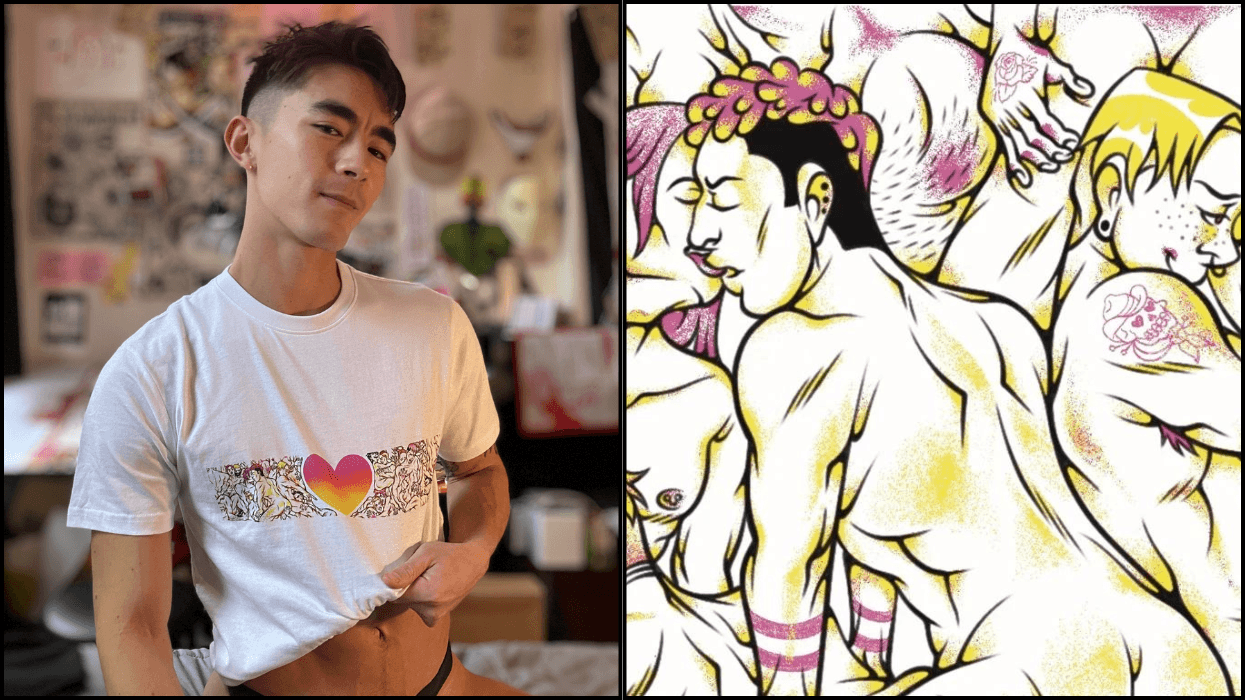
Pride
Yahoo FeedCreating erotic art and advocacy with adult entertainer Cody Silver (EXCLUSIVE)
April 12 2024 11:39 AM
How I navigated through religious trauma
April 12 2024 11:00 AM
















